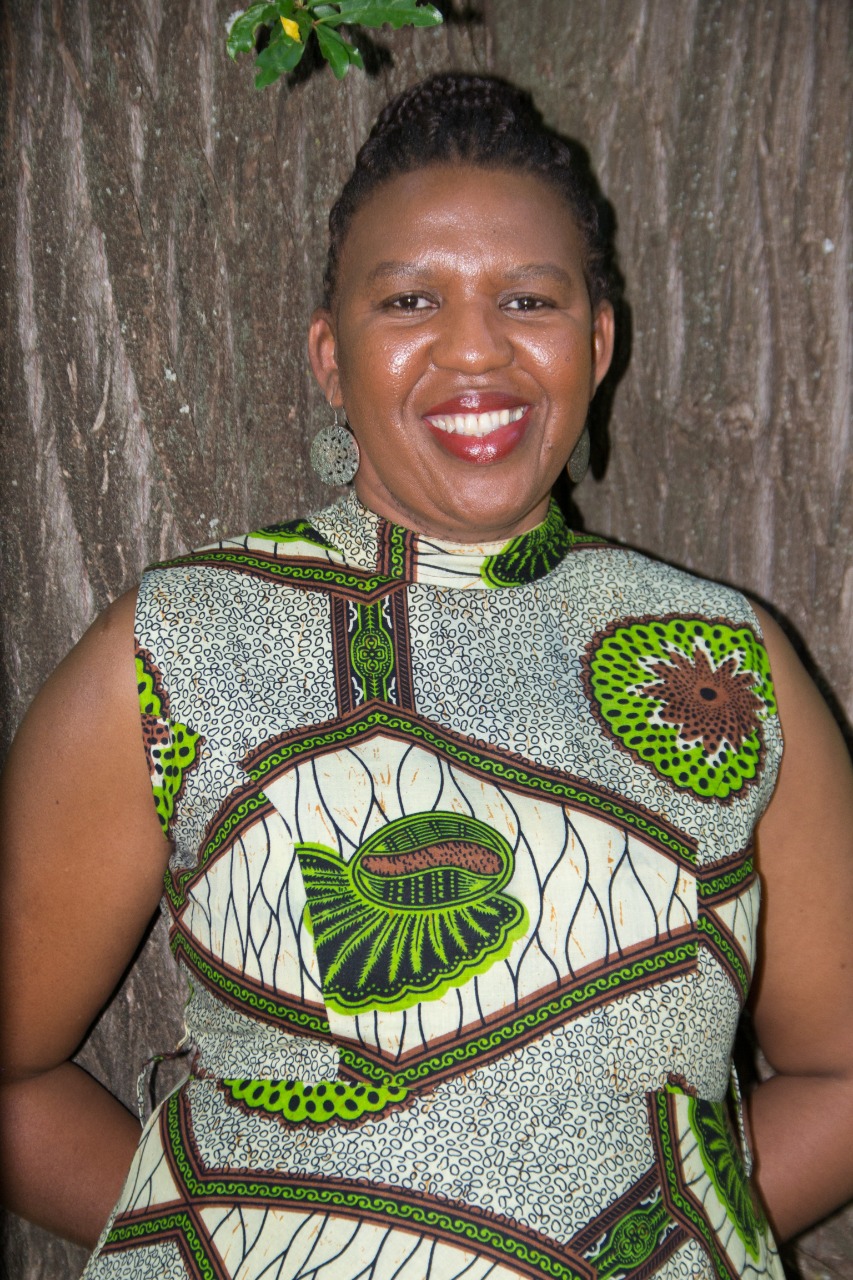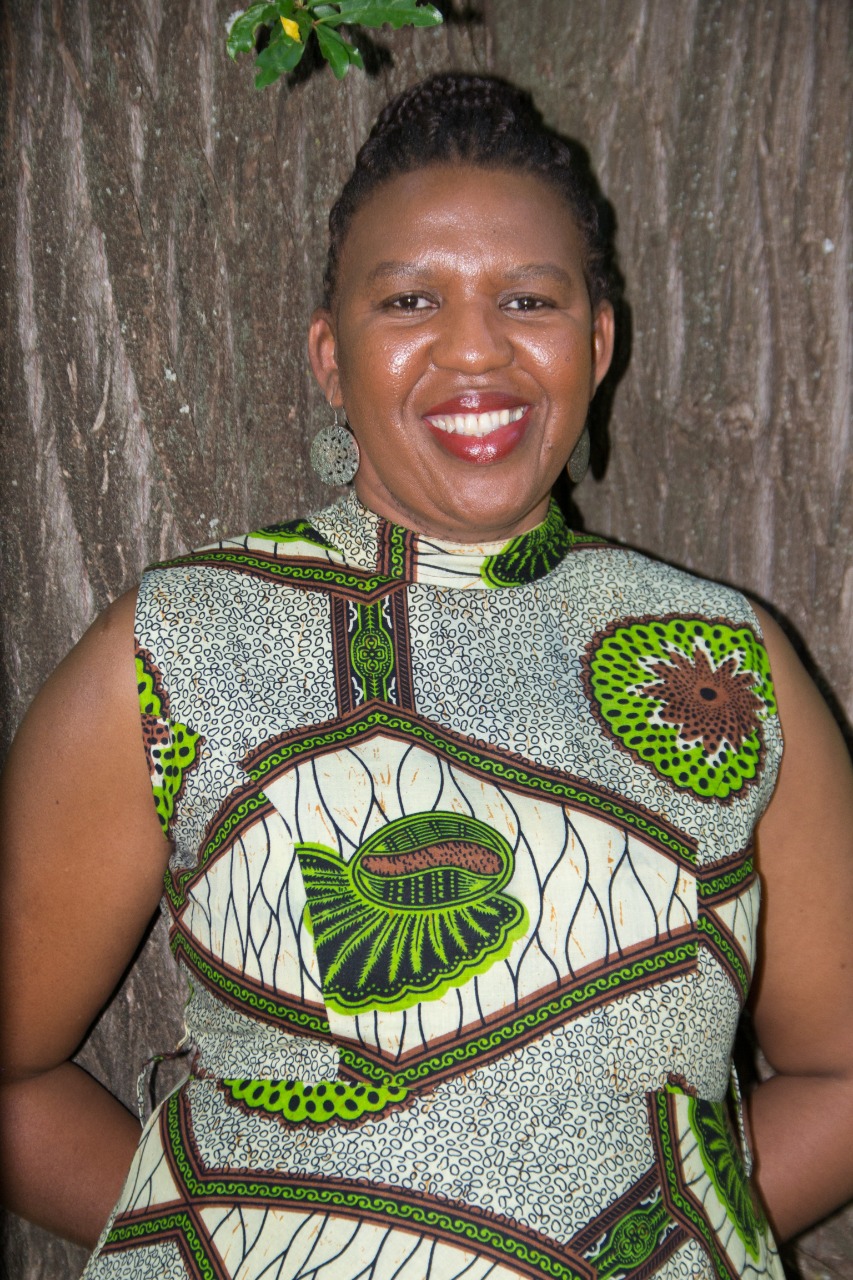In conversation with Lorato Trok: Responsible publishing and making open licensing sustainable


For this blog series, the Early Learning Resource Network is reaching out to authors, editors, illustrators, translators, educators, publishers and other stakeholders who, through their creative endeavours, are working to grow and improve the early learning environment, specifically on the African continent.
We focus specifically on pertinent issues such as access to books and stories, open licensing, innovative publishing, literacy challenges, language-use and translation.
We recently had a fascinating conversation with South Africa’s award-winning author and translator, Lorato Trok about her most recent work, her motivation to keep telling stories about powerful girls who do extraordinary things, and her views on open licensing and translation.
ELRN: What were some of the most exciting and innovative things you came across during lockdown, with reference to early literacy or storytelling?
LT: Even though lockdown exposed our known inequalities, where it was very clear which section of society was benefitting from online schooling and story-telling sessions, it was still beautiful to see the innovation of young people and literacy organizations trying to get people and young children to read.
ELRN: With reference to your quote from the Times Live article above, do you think these stories published to social media, or read aloud on social media are accessible enough? What about radio? Have we forgotten that medium, or are we doing enough to reach all members of our society?
LT: Online platforms are definitely not mediums accessible to the majority of the people, but we cannot deny the fact that our lives changed with the pandemic this year and a lot of events will continue to be online. But yes, there should be something for everyone and I’m very proud to be involved in writing radio stories for Nal’ibali. These stories are flighted on all SABC radio stations in all eleven official languages.
I have written several radio stories for Nal’ibali and I think this is a great collaboration between Nal’ibali and the SABC. That these stories are translated into other languages and available on a medium that reaches millions of South Africans is an impressive feat. Nal’ibali has mastered the art of reaching millions of South African children through mediums that are widely used and cheaper, like WhatsApp. Nal’ibali has also successfully lobbied for zero-rated access to their website.
ELRN: You were a Book Dash author, for the wonderful title Mogau’s Gift – available in English, isiXhosa isiZulu and Setswana – what do you think of the Book Dash model, and its goal to give every child a book by the age of five?
LT: Book Dash is a great South African initiative run by a committed team passionate about South African children’s literature. I like that the books are originated at the workshop by the authors and illustrated in real time. It will be a game changer if they can realize their dream of getting 100 books into every child’s hands by the age of five. This will greatly change literacy in unprecedented ways in our country.
I only did it once because I wanted to contribute a story, and my time, to be one of the voices who comes from a background the children who are getting the books will recognize. Most of the people who volunteer for Book Dash are not necessarily people who come from those backgrounds.
ELRN: Do you think the volunteerism model skews a non-profit organization’s (NPO) output? Does work created by volunteers who can ‘afford’ to give their time and creativity, rather than by a more representative pool of paid talent, result in very one-sided stories being produced?
LT: I think some sections of South African society can afford to volunteer their time. However, as a rule, creatives should be paid for their time and skills, especially people who work in African languages who barely make a living from their services. Otherwise we end up with stories written and illustrated by people who don’t look like the children these stories are intended for. We can no longer buy the ‘poverty’ angle that non-profits are using to get people to volunteer their services. There are non-profits that pay exorbitant fees to consultants but plead poverty when they are supposed to pay people who work in African languages.
ELRN: These stories then rely on translation to reach their intended audience, do they lose something in the process?
LT: Yes they do, to some extent. We all know that translation is good for the target languages, but we are past the time of having children’s stories in African languages being solely translated, in a country where more than 80% of the population identify African languages as home languages. It’s about time that stories are originated in languages that children speak and read. Puku is a great example of producing children’s stories through their writing workshops where all the stories are originated in African languages and translated into English and Afrikaans. This changes the power dynamics of English and Afrikaans, as well as the faces of the authors and illustrators of these stories.
ELRN: How important is it for people – authors, NPOs, creators, governments – to be facilitating the creation of resources that are openly licensed? Is it sustainable, and do you think there are publishing models that employ open licensing that might work?
LT: It’s all well and good that open licensing gives more people free access to material, especially that children get to read or access books for free, and for teachers at schools that are not resourced, I also think it’s good for universities to make their material to students freely available. But again, creatives lose. So, it depends what type of open licensing it is. A non-commercial open license gives the creative nothing. If one cannot make a living out of their work, publicity means nothing.
A livable once-off fee to creatives may be a solution, but they should at least be given a choice to either accept a once-off payment or not. This is not a complete solution, but it opens up a dialogue between the content creator and the content provider. It’s not a one-way decision where creatives feel like they have no say.
I think we need more education when it comes to copyright. A lot of creatives have been burned because of open licensing, because of copyright laws that they don’t understand. Copyright education should be ongoing. Publishers and people with power who sign contracts should never assume everyone understands the language of contracts. Misunderstandings cause unnecessary rifts.
ELRN: What responsibility do you think publishers should take to ensure that an equitable payment is made to the creatives, while also promoting open licensing opportunities?
LT: Publishers need to ensure that creatives understand the contents of the contract they are getting into by explaining the pros and cons. When one has spent countless hours working on their craft, they need to be compensated fairly. Creatives in this country are not being fairly compensated and I speak as a creative who has published through open licensing and commercial publishing.
ELRN: What is perhaps missing from publishing contracts that would assist creatives?
LT: Layman's language.
ELRN: Having read your African Storybook Blog post titled ‘What are the issues in translating and versioning stories for early reading in local African languages?'- do you think enough attention is being paid to how storybooks are being translated from one language to another?
LT: Publishers can do better. I think large resources should be invested in translation of African languages. I have issues with anyone who speaks a language being deemed a translator. Translation is a rare skill and translators should be chosen for their skill in translating and be paid fairly for their services. I have seen some really bad translations that shows the publishers just don’t put the same effort in to African languages as they do with English and Afrikaans. The processes that are followed before books are published in English and Afrikaans are not followed when it comes to African languages.
If publishers invest in skilled translators, this could be a game changer.
ELRN: Are you seeing more mother tongue ‘reading for pleasure’ resources for children since you started publishing your children’s books in Setswana?
LT: I am seeing an explosion of young voices speaking up for their languages. I love that. More people are writing in their languages and/or advocating for the production of materials in their languages. This includes the Rutanang Kasi Book Festival, in Potchefstroom held at the end of September, with a focus on literature in Setswana, and more informally a book club that’s popped up in Jan Kemp Dorp, where they give away or sell Setswana books.
ELRN: How has your lockdown been? And what projects have you got on the go at the moment? Can you tell us more about your translation of The Best Meal Ever.
LT: Lockdown has been the busiest time in my writing career. I have written two radio stories for Na’libali, published one Setswana children’s picture book and two young adult (YA) biographies! I have been really busy. I enjoyed translating Sindiwe Magona and Paddy Bouma’s The Best Meal Ever (Dijo tse di Monate go Gaisa!) so much. Such a lovely, heartwarming story of hope. It is written in a way that lends itself well to translation. One of the Setswana reviewers who reviewed the book said that when she read the story she thought Setswana was the original language of the story. That was very rewarding for me and an affirmation that the work I do is of value.
The more people write in their own languages, the more this will sustain our languages and prevent them from extinction. As much as I love Setswana – it’s my language, I am all about multilingualism – I would prefer that people invest in, and promote their languages as much as I invest in and promote Setswana. I love seeing other African languages out there being promoted, written and read.
Lorato Trok’s translation of The Best Meal Ever has been included on the Ibby Honour List, and will be on display in libraries across seven continents.
You can also look out for her brand new title, The Forgotten Scientist: The Story of Saul Sithole (Jacana Media), available in six languages from October 2020.




